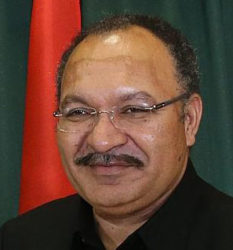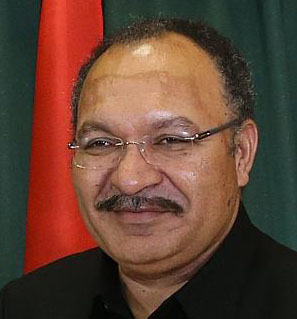SYDNEY, (Reuters) – Dozens of people were wounded in Papua New Guinea yesterday after police opened fire on a student demonstration in the capital and riots erupted across the country, but officials said earlier reports of up to four dead were incorrect.
A groundswell of political unrest in recent weeks has surged in the country, just to Australia’s north, amid calls for Prime Minister Peter O’Neill to resign over corruption allegations.
Students and officials said police fired on the public and used tear gas to disperse crowds during a protest at the University of PNG’s Waigani campus in Port Moresby. Protests were later reported in the PNG highland cities of Goroka and Mt. Hagen, and in Lae on the north coast.

“Now there is a very big clash with the public and with the police just outside the Port Moresby General Hospital,” a hospital official told Reuters by telephone soon after a group of wounded students were taken there for treatment.
“There is also shooting going on, open gunfire.”
The government said initial reports that up to four people had been killed were incorrect. An official at the Port Moresby General Hospital said 38 casualties had been treated there, including four with bullet wounds, but no deaths.
O’Neill later issued a statement in which he refused to stand down.
“The facts relayed to me are that a small group of students were violent, threw rocks at police and provoked a response that came in the form of tear gas and warning shots,” he said.
United Nations Secretary-General Ban Ki-moon on Wednesday expressed concern about the clashes.
“He calls for calm and stresses the importance of respect for peaceful protest and freedom of assembly, and a commitment to rule of law, dialogue and non-violence,” Ban’s spokesman Stephan Dujarric said in a statement.
Papua New Guinea, formerly administered by Australia, struggles with endemic violence and poverty despite a wealth of mineral resources. It is ranked 139 out of 168 in Transparency International’s corruption index.

